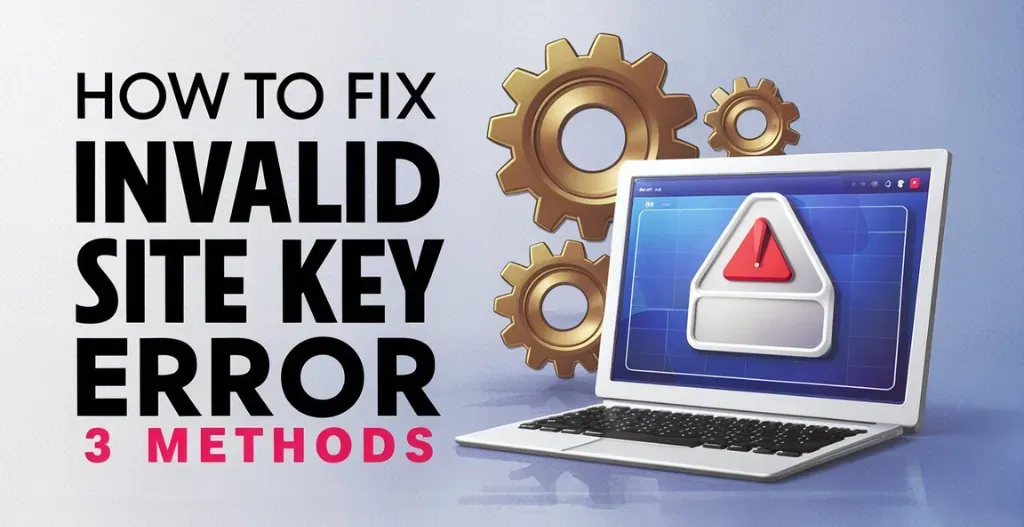In the world of information technology (IT), Learning the server management is a very crucial skill that can make the success of a business. With the growing rise of technology, Mostly all the companies rely on technology to operate, in this case the role of learning server administrator is much more important. From learning to ensure optimal performance and security to troubleshooting issues and updating to newer versions, a expert server administrator play a critical role in keeping a company’s systems running smoothly.
Mastering server management is not a bigger deal but it requires deep understanding of various technologies, networking protocols, and security measures. It also involves staying up-to-date with the latest trends and developments in the field. With the rise of cloud computing and virtualization, the job of a server administrator has become even more complex, requiring a diverse skill set and the ability to adapt to rapidly changing environments.
In this blog post, We will explore on How to master server management, covering all the topics required such as server installation, configuration, monitoring, and maintenance. Stay tuned for expert advice and guidance on how to excel in this critical aspect of IT infrastructure.
Learning server administration involves understanding the fundamentals of server hardware and software, as well as the various tools and techniques used to manage and monitor servers effectively. From setting up and configuring servers to troubleshooting and resolving issues, a well-rounded knowledge of server management is essential for any IT professional.

Introduction To Server Management :
Organizations that completely rely on technology requires a expert in managing servers to operate their business efficiently. Server Management involves tasks such as maintenance, monitoring, and optimization of servers to ensure they are running smoothly and performing at their best. This also includes such as installing and configuring server software, managing user accounts and permissions, monitoring server performance, and troubleshooting any issues that may arise. Effective server management is essential for ensuring high availability, security, and performance of an organization’s IT infrastructure.

Key Components Of Server Management :
- Server Monitoring :
- Performance Monitoring: Tracking server performance metrics such as CPU usage, memory usage, disk I/O, and network activity.
- Availability Monitoring: Ensuring servers are up and running and accessible at all times.
- Log Monitoring: Regularly reviewing server logs for errors, security breaches, and other issues.
- Server Maintenance :
- Software Updates: Regularly updating server operating systems, applications, and firmware to patch security vulnerabilities and improve performance.
- Hardware Maintenance: Ensuring that physical server components are functioning correctly and replacing faulty hardware.
- Backups: Regularly backing up server data to prevent data loss in case of hardware failure or other disasters.
- Security Management :
- Firewall Management: Configuring and maintaining firewalls to protect against unauthorized access and attacks.
- Antivirus and Anti-Malware: Installing and updating security software to protect against viruses and malware.
- Access Controls: Managing user access levels and permissions to ensure that only authorized personnel can access sensitive data.
- Configuration Management :
- Server Configuration: Setting up and configuring servers to meet the specific needs of applications and users.
- Automation: Using tools to automate repetitive tasks and ensure consistent server configurations.
- Change Management: Documenting and managing changes to server configurations to avoid conflicts and maintain stability.
- Resource Management :
- Load Balancing: Distributing workloads across multiple servers to optimize performance and prevent any single server from becoming overloaded.
- Capacity Planning: Forecasting future server needs and planning for additional resources to handle increased workloads.
- Storage Management: Managing disk space and storage resources to ensure efficient use and prevent shortages.
- Disaster Recovery
- Backup and Restore: Implementing and testing backup and restore procedures to recover data in case of an outage or data loss.
- Redundancy: Using redundant hardware and failover systems to minimize downtime in case of server failures.
- Disaster Recovery Plan: Developing and maintaining a comprehensive plan to recover from major incidents.
- Performance Optimization
- Tuning: Adjusting server settings and configurations to optimize performance.
- Scalability: Ensuring servers can handle increased loads by scaling resources up or down as needed.
- Load Testing: Testing servers under load to identify and resolve performance bottlenecks.
- Documentation and Reporting
- Documentation: Maintaining complete documentation of server configurations, procedures, and policies.
- Reporting: Generating reports on server performance, security incidents, and maintenance activities for review and decision-making.

Importance of Efficient Server Management :
- Reliability and Uptime
- Continuous Operation: Efficient administration ensures servers are always up and running, minimizing downtime and disruptions.
- Proactive Maintenance: Regular updates and maintenance help prevent unexpected failures and outages.
- Performance Optimization
- Resource Management: Efficient management of CPU, memory, and storage resources ensures optimal server performance.
- Load Balancing: Distributing workloads evenly across servers prevents overloads and improves response times.
- Security
- Patch Management: Timely updates and patches prevent vulnerabilities and protect against cyber threats.
- Access Control: Proper management of user permissions and roles reduces the risk of unauthorized access.
- Cost Efficiency
- Resource Utilization: Efficient administration helps in maximizing resource usage, reducing the need for additional hardware.
- Energy Savings: Well-managed servers consume less power, lowering operational costs.
- Scalability
- Flexible Scaling: Efficient administration allows for quick scaling up or down of resources in response to changing demands.
- Automation: Automating routine tasks and processes saves time and reduces the risk of human error.
- Backup and Disaster Recovery
- Regular Backups: Ensuring regular backups minimizes data loss in case of failures.
- Disaster Recovery Plans: Well-defined recovery plans enable quick restoration of services after an incident.
- Compliance and Reporting
- Regulatory Compliance: Proper administration ensures adherence to industry standards and regulations.
- Audit Trails: Maintaining detailed logs and reports helps in monitoring activities and conducting audits.
- User Satisfaction
- Service Quality: Efficient server administration leads to faster, more reliable services, improving user satisfaction.
- Support and Troubleshooting: Prompt issue resolution ensures users face minimal disruptions.
- Innovation and Development
- Support for New Technologies: Efficient administration facilitates the adoption of new technologies and innovations.
- Development Environment: Providing stable and robust environments for development and testing speeds up the innovation process.

Benefits Of Learning Server Management :
- Improved Troubleshooting Skills: Understanding server management helps you diagnose and resolve issues more efficiently, which can minimize downtime and improve service reliability.
- Enhanced Security: Knowing how to manage servers allows you to implement security measures, such as firewalls, encryption, and access controls, to protect data and systems from cyber threats.
- Cost Efficiency: Effective server management can optimize resource use, reduce the need for excessive hardware, and prevent unnecessary expenses. This is particularly important for businesses looking to manage their IT budgets effectively.
- Scalability: Learning server management helps you design systems that can scale with your needs. You can better plan for growth, manage increased traffic, and ensure that your infrastructure can handle future demands.
- Backup and Recovery: Understanding server management includes setting up and maintaining backup systems. This ensures that data is regularly backed up and can be quickly recovered in case of failure or disaster.
- Performance Optimization: You can monitor and fine-tune server performance to ensure that applications run smoothly, improving the overall user experience.
- Automation and Efficiency: Knowledge of server management allows you to automate routine tasks, such as software updates and backups, which can save time and reduce human error.
- Customizability: By learning server management, you can configure servers to meet specific needs, install custom software, and tailor environments to fit particular requirements.
- Career Advancement: Server management skills are in high demand in the IT industry. Learning these skills can enhance your career prospects and open up new job opportunities.
- Control and Flexibility: Managing your own servers gives you greater control over your IT infrastructure, allowing you to make changes and adjustments as needed without relying on external providers.

Can Server Management Be a Good Career Choice?
Yes, server management can be a great career choice for several reasons:
- High Demand: There’s a consistent demand for skilled professionals who can manage and maintain servers. As businesses continue to rely on technology, the need for server administrators and IT professionals remains strong.
- Diverse Opportunities: Server management skills can lead to various roles, including systems administrator, network administrator, cloud engineer, and IT consultant. These roles span different industries and types of organizations.
- Competitive Salaries: Careers in server management often come with competitive salaries. As you gain experience and expertise, your earning potential can increase.
- Career Growth: There are ample opportunities for career advancement in this field. With additional skills and certifications, you can move into more senior positions or specialize in areas like cloud computing, cybersecurity, or data center management.
- Constant Learning: The field of server management is dynamic, with new technologies and best practices emerging regularly. This environment provides continuous learning opportunities and helps keep the work engaging.
- Impactful Work: Managing servers is crucial for ensuring the smooth operation of IT systems, which can have a significant impact on a business’s efficiency, security, and customer satisfaction.
- Flexible Work Environment: Many server management roles offer flexibility, including remote work options, which can contribute to a better work-life balance.
- Skill Transferability: Skills acquired in server management are transferable to other IT roles, such as cloud administration, database management, and IT project management.

Pros & Cons For Learning Server Management :
Pros
- High Demand
- Flexibility and Remote Options
- Good Earning Potential
- Career Growth Opportunities
- Impactful Work
- Versatile Skill Set
Cons
- Steep Learning Curve
- Continuous Learning Required
- Requires Significant Time Investment
- Pressure and Responsibility
- Complex Problem-Solving Required
Methods To Master Server Management :
- Educational Resources
- Online Courses: Platforms like Coursera, Udemy, LinkedIn Learning, and Pluralsight offer courses on server management, covering topics from basics to advanced techniques.
- Certifications: Pursue certifications such as CompTIA Server+, Microsoft Certified: Windows Server, or Red Hat Certified Engineer (RHCE) to validate your skills and knowledge.
- Hands-On Practice
- Set Up a Lab: Create a home lab using physical or virtual servers. Tools like VirtualBox, VMware, or cloud platforms like AWS and Azure can help you practice server setup, configuration, and management.
- Experiment with Different Operating Systems: Familiarize yourself with various operating systems like Windows Server, Linux distributions (e.g., Ubuntu, CentOS), and others to understand their management and administration.
- Study Documentation and Manuals
- Official Documentation: Read official documentation for server software and hardware. This can provide in-depth knowledge of features, configurations, and best practices.
- Technical Books: Books on server management and related topics can provide comprehensive learning and reference material.
- Join Online Communities
- Forums and Groups: Participate in forums like Stack Overflow, Spiceworks, or Reddit’s r/sysadmin to discuss issues, share knowledge, and seek advice.
- Professional Networks: Join professional groups and associations related to IT and server management to connect with peers and stay updated on industry trends.
- Practice Troubleshooting
- Simulate Issues: Create and solve simulated problems to improve your troubleshooting skills. This could involve network issues, software failures, or security breaches.
- Learn from Real-World Scenarios: Study case studies and post-mortems of server failures to understand common issues and effective solutions.
- Stay Updated with Industry Trends
- Follow Blogs and News: Keep up with the latest trends and updates in server management through blogs, news sites, and industry publications.
- Attend Webinars and Conferences: Participate in webinars, workshops, and conferences to learn about new technologies and best practices.
- Work on Projects
- Personal Projects: Undertake personal projects to apply your skills. This could involve setting up a web server, creating a network environment, or managing a small-scale IT infrastructure.
- Contribute to Open Source Projects: Get involved in open source projects to gain experience and collaborate with other professionals.
- Seek Mentorship
- Find a Mentor: Connect with experienced professionals who can provide guidance, share their experiences, and offer practical advice.
- Networking: Engage with industry professionals through networking events or social media to learn from their experiences and insights.
Conclusion – The Final Verdict
Mastering server management is a valuable skill that can significantly impact a business’s success. By understanding how to install, configure, monitor, and maintain servers, IT professionals ensure that systems run smoothly, stay secure, and operate efficiently. This expertise is crucial for minimizing downtime, optimizing performance, and safeguarding data.
Learning server management involves gaining knowledge of hardware and software, staying updated with the latest technologies, and honing troubleshooting skills. With the rise of cloud computing and virtualization, the role of a server administrator has become more complex, but also more essential.
Whether through online courses, hands-on practice, or engaging with professional communities, developing server management skills can lead to rewarding career opportunities and contribute to a business’s overall efficiency. In a tech-driven world, mastering server management is not just a career choice—it’s a strategic advantage.
Checkout Top 5 Best Dedicated Server Providers in India 2024
Discover more from Owrbit
Subscribe to get the latest posts sent to your email.











